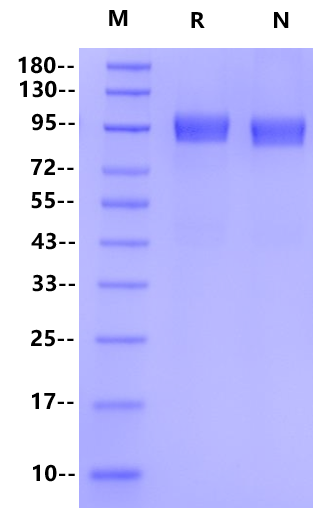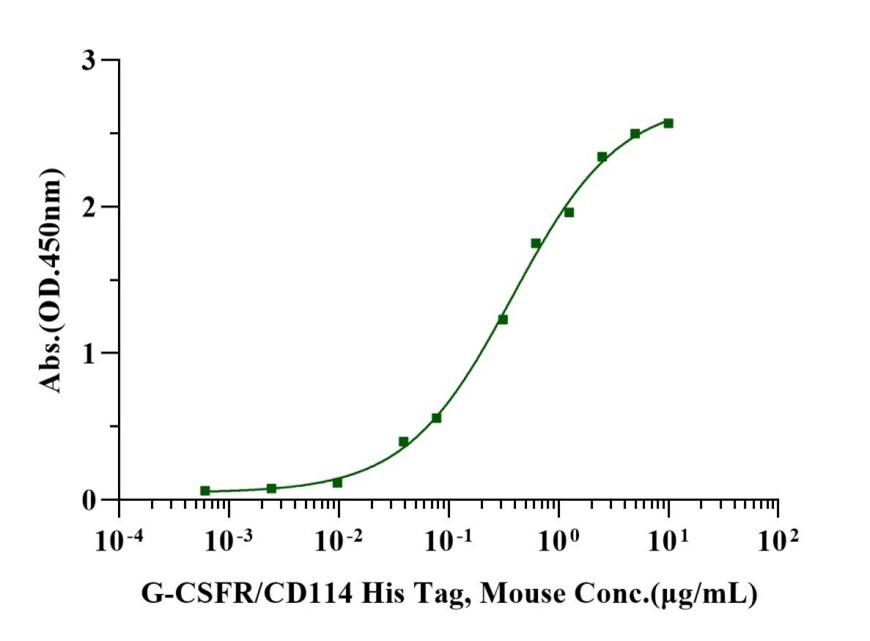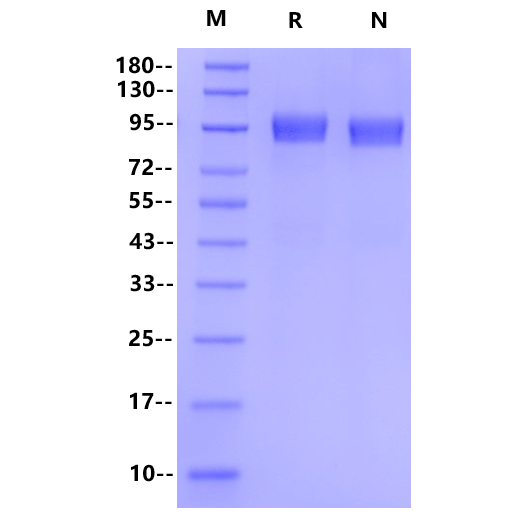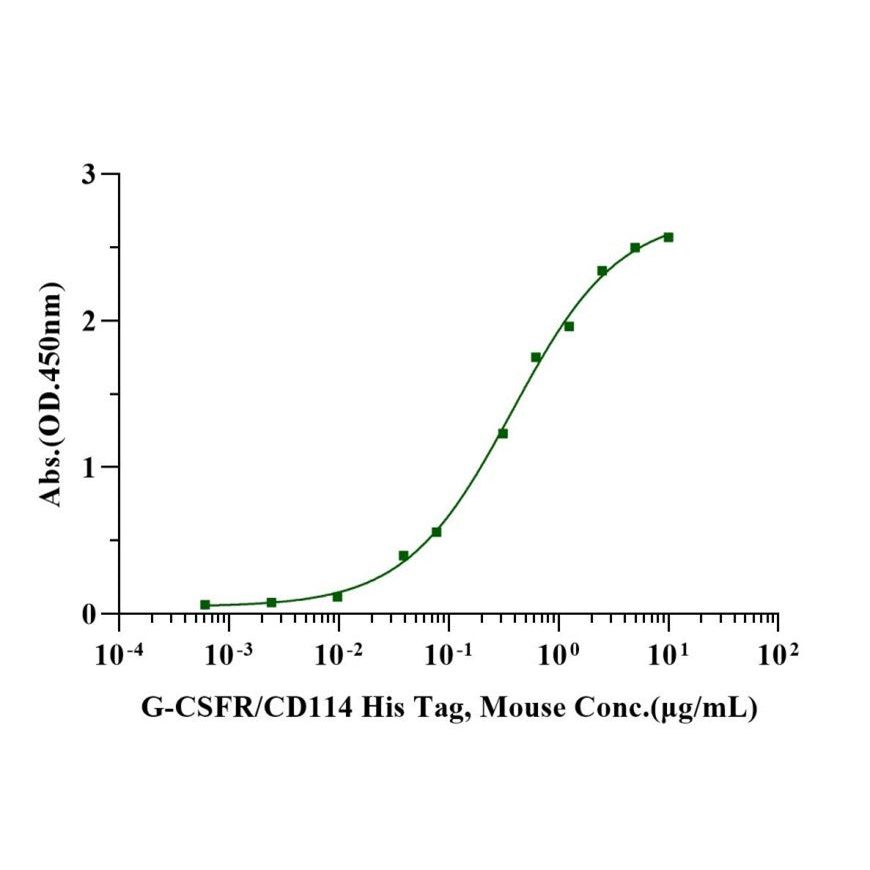Product Details
Product Details
Product Specification
| Species | Mouse |
| Synonyms | G-CSFR, CD114, CSF3R, G-CSF receptor, SCN7, Granulocyte Colony-Stimulating Factor |
| Accession | P40223 |
| Amino Acid Sequence | Cys26-Asp626, with C-8*His |
| Expression System | HEK293 |
| Molecular Weight | 88-108kDa |
| Purity | >95% by SDS-PAGE |
| Endotoxin | <0.1EU/μg |
| Conjugation | Unconjugated |
| Tag | His Tag |
| Physical Appearance | Lyophilized Powder |
| Storage Buffer | PBS, pH7.4 |
| Reconstitution | Reconstitute at 0.1-1 mg/ml according to the size in ultrapure water after rapid centrifugation. |
| Stability & Storage | · 12 months from date of receipt, lyophilized powder stored at -20 to -80℃. · 3 months, -20 to -80℃ under sterile conditions after reconstitution. · 1 week, 2 to 8℃ under sterile conditions after reconstitution. · Please avoid repeated freeze-thaw cycles. |
| Reference |
1、Hollenstein U. et al. (2000) Endotoxin down-modulates granulocyte colony-stimulating factor receptor (CD114) on human neutrophils. J Infect Dis. 182(1): 343-346. 2、Kindwall-Keller T L. et al. (2008) Role of the proteasome in modulating native G-CSFR expression. Cytokine. 43(2): 114-123. 3、Beel K. et al. (2009) G-CSF receptor (CSF3R) mutations in X-linked neutropenia evolving to acute myeloid leukemia or myelodysplasia. Haematologica. 94(10): 1449-1452. |
Background
Granulocyte colony stimulating factor (G-CSF) is a pleiotropic cytokine best known for its specific effects on the proliferation, differentiation, and activation of hematopoietic cells of the neutrophilic and granulocyte lineage. G-CSF plays an important role in defense against infection, in inflammation and repair, and in the maintenance of steady state hematopoiesis. Cell activation by G‑CSF is mediated by granulocyte colony stimulating factor receptor alpha (G-CSF R; also CD114), a 95 ‑ 105 kDa type I transmembrane protein and member of the cytokine receptor superfamily, type I cytokine receptor family, and type 2 subfamily of receptor proteins. G-CSFR is present mainly on precursor cells in the bone marrow, and, in response to stimulation by G-CSF, initiates cell proliferation and differentiation into mature neutrophilic granulocytes and macrophages. G-CSFR mediates the specific effect of GCSF through activating a variety of intracellular signaling cascades, including the Jak/Stat, PI3/Akt, Ras-Raf-MAP kinase, and Src family kinase pathways, and thus functions in defense against infection, inflammation and repair, and in the maintenance of steady state hematopoiesis. Mutations in this gene are a cause of Kostmann syndrome, also known as severe congenital neutropenia. Mutations in the intracellular part of this receptor are also associated with certain types of leukemia. G-CSF could play a significant role both in preventing the development of excessive and potentially damaging inflammatory reactivity, and in constraining the expansion of potentially cytodestructive T cells.
Picture
Picture
SDS-PAGE

ELISA

Immobilized G-CSF, Human (Cat. No. UA040043) at 2.0μg/mL (100μL/well) can bind G-CSFR/CD114 His Tag, Mouse (Cat. No. UA010219) with EC50 of 0.31-0.47μg/l.




